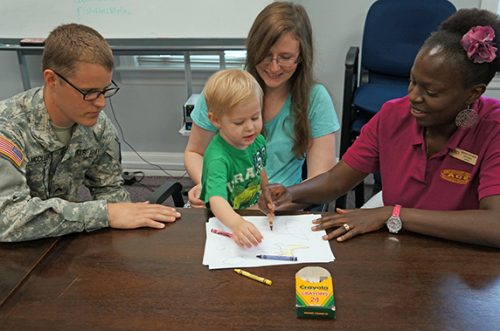
When the condition was presented in 1940, Hans Asperger, a Viennese pediatrician described it as having a mild autism-like disorder characterized by social and communication difficulties most commonly affected are boys having average intellectual skills and speech development.
From DSM-IV TR (Diagnostic and Statistical Manual of Mental Disorders-Fourth Edition (Text Revision), the condition was accepted as a standalone diagnosis for children with problems in nonverbal behaviors, specifically the eye-to-eye connection, facial expression, body positioning to promote social interaction. Came the present DSM-5 and the new description of Asperger’s is now highlighted as Social Communication Disorder.
“It is important to note that the intention is to first understand the person with autism, to join with them, and then to help them modify their communication in a way so that repetitive restrictive behaviors can become channeled, the nervous system can settle, and social engagement can begin.” –Christina Devereaux Ph.D, BC-DMT
In the most common layman’s term, children with Asperger’s are called “geeks” due to the high-level functioning of their IQ. This quality is sometimes considered a detrimental factor rather than an asset to some school environment as evidenced by increased rates of bullying.
The Challenges

People with this kind of condition have normal to a superior range of IQ, unlike persons with autism who have manifested delays in intellectual skill as early as the age of 2.
The Autism Society mentioned that there had not been a delay in language development in people with Asperger’s Syndrome. The struggle of establishing a social connection is not due to delayed language development being socially withdrawn. Instead, they become socially awkward due to becoming hesitant about how to connect with the people around them. They have the interest to be part of their social circle. However, they are having significant difficulties in doing it.
“Traditionally, intervention for children with Autism Spectrum Disorder (ASD) has focused upon reducing interfering behavior and teaching language, academic and self-help skills.” –Marlene Driscoll, MA, LMFT
Having this behavior sets them as “weird” and “eccentric” from the rest of the crowd. With our present society, being “weird” is not so socially accepted. Thus, the problems arise such as bullying, discrimination, and labeling with negative connotations. These can lead to psychological setbacks as the child understands what is going on around them.
The film Temple Grandin is an inspiring true-to-life story of a girl with Asperger’s syndrome who successfully became an expert in her field of study. Temple Grandin also became an inspiration to parents whose children have autism spectrum disorder not to lose hope and to continue loving and helping their children survive.
The Parents’ Role

Once again, the role of the parents is critical in the lives of children with Asperger’s syndrome. “The autism diagnosis itself is often traumatic for parents. It can be a grueling process that may take up to a year or more, with multiple visits to several different professionals.” Janeen Herskovitz, MA, LMHC said. What parents can do can be summarized in the following:
- Be Honest. Never camouflage the condition of your child. Some parents, because of the stigma it represents, would try to sugarcoat the situation when people ask them about the real condition of their children. Hey, tell them she has Asperger’s, and it’s not contagious! Perhaps this way, they will start looking at the disorder with much respect other than treating it as a communicable disease.
- Create Awareness. The moment you become honest, it is time to start educating the people around you about Asperger’s syndrome. Becoming aware is the first step to remove the veil of misunderstanding.
- Be There For Your Child. Some parents would say, “I’m supportive of my child.” However, they are still not emotionally present and available when needed. Asperger’s syndrome will have more demands on your time and attention. You need to anticipate this in the future.
- Have Other Family Members Get Involved. You cannot do this alone. You are not a superhero. Be realistic – you need help from your family and other resources. At present, many online support groups can offer some tips and recommendations on how to handle the problems that will come your way.
